Mindfulness and Body-Based Approaches: Interventions for trauma, addiction, anxiety, depression, ADHD, and more – Christopher Willard
Original price was: $299.99.$64.00Current price is: $64.00.
Mindfulness and Body-Based Approaches: Interventions for trauma, addiction, anxiety, depression, ADHD, and more – Christopher Willard Download. You know th…
Salepage link: At HERE. Archive:
You know that mindfulness works and can produce massive change for your clients struggling with trauma, anxiety, depression, ADHD and more.
But getting your clients to practice mindfulness and body-based techniques isn’t easy. And it’s frustrating when they seem to be completely stuck — making no forward progress toward their therapeutic goals — even though you’ve given them valuable tools for personal transformation.
So how do you make mindfulness and body-based approaches work for your clients, not just in session, but also in their daily lives where challenging moments inevitably happen?
It starts by customizing your clinical framework with tools and techniques that match their lifestyle and clinical diagnosis.
Join me today for my new online certificate training, and I’ll show you exactly how to integrate and customize mindfulness and body-based approaches that are proven to help your clients break the rumination cycle, disempower intrusive thoughts, lower the stress response, pacify anger, and so much more… to improve their quality of life and achieve their goals.
The best part? The evidence-based tools and strategies you’ll learn are backed by the power of neuroscience and can be effortlessly integrated with your current clinical model, allowing you to take your therapeutic outcomes to the next level.
Don’t wait to get started earning your certificate. Make today the day you start providing your clients a lifetime of relief by making mindfulness and body-based approaches stick.
I’ll see you in the course,
Dr. Christopher Willard
“I wish I could help clients overcome their most challenging symptoms!”
Now you can…
Hi, I’m Dr.Christopher Wilard. I’m a multi-time author, a national and international speaker, and a faculty member at Harvard Medical School. After years of experience working with clients and fellow clinicians, I’ve developped a holistic approach that makes it easy for clients to cultivate and grow their own mindfulness practice.
Using this clinical framework, I’ve watched my clients dramatically change right before me eyes, and I’ve taught thousands of therapists how they can implement this powerful model in their own practice.
Now you can learn to effortlessly integrate the exact same tools and strategies to help your clients find relief from the difficult symptoms of trauma, addiction, anciety, depression, ADHD and more…
The Secret of Clinicians Who GET Results…
Customization.
Using mindfulness in clinical practice to get results is all about safely adapting body-based tools like breathing, movement, sensory practices, and visualization exercises, to the unique needs of each client and their clinical diagnosis.
Through 10 video modules, Dr. Christopher Willard will show you step-by-step how you can easily adjust his evidence-based clinical framework for clients struggling with trauma, addiction, anxiety, depression, ADHD and more.
Starting right away in Module 1, you’ll learn neuroscience-backed strategies that you can immediately apply to:
- Enhance the therapeutic relationship
- Improve sleep outcomes
- Break the rumination cycle
- Disempower intrusive thoughts
- Lower the stress response
- Interrupt the habit loop of addiction
- Pacify the anger response
- Reduce the intensity of panic attacks
- Avoid relapse by mindfully monitoring triggering situations
- Improve attentional control
- …and so much more
By the end of the certificate training, you’ll be confident in your ability to help clients cultivate and grow in their own practice, allowing you to make the biggest impact on your clients’ brain and their recovery from whatever it is they’re struggling with.
Here’s more of what you’ll be learning…
Module 1:
Mindfulness and Neuroscience of Stress, Attachment and Mental Health
What is Mindfulness? How does it relate to stress, attachment, and mental health? In Module 1, we will explore:
- Mindfulness and neuroscience of healthy attachment and brain development
- How to use the breath as a “remote control” for our minds, bodies and emotions
- The simple science of how mindfulness keeps depression, PTSD, anxiety, aggression and addiction at bay
- Mind-body interventions for stress and attachment issues
Module 2:
A Holistic Model of Mindfulness and Mind-Body Interventions
Module 2 explores the bio-psycho-social model of mental health and mental illness.
- Introducing mindfulness of body through eating and movement in simple and straightforward ways
- Exploring mindfulness of thought with playful, cognitive interventions
- Understanding the social construction of mental health, and looking at interpersonal mindfulness and positive psychology interventions
Module 3:
The Neuroscience of Mindfulness
Module 3 explores the neuroscience of mindfulness, interventions supported by neuroscience research, and how to incorporate mindfulness into treatment modalities.
- A simple practice to rewire resilience that shows what mindfulness does to the brain
- Translate neuroscience and epigenetic research to mindfulness for your clients
- Understand interpersonal neurobiology and your role in the therapeutic encounter
- Know the state of the research on mindfulness based interventions
- Effectively integrate mindfulness into many modalities of therapy including DBT, ACT, CBT and more
Module 4:
Creating a Mindful Space: Focus on Mindfulness and Compassion for the Clinician
Module 4 explores the benefits of mindfulness for the therapist – maintaining presence and focus, managing the stress of your challenging job, and staving off “compassion fatigue”.
- Why and how mindfulness will make you a better and happier therapist and positively impact your clients
- Presence, countertransference, and decision-making techniques to sharpen your clinical intuition and improve patient outcomes
- Self-compassion, appreciation, and relaxation exercises to avoid burnout
- Focusing practices to keep your mind alert, awake and alive
- Contemplative techniques to keep calm, connected and creative in your sessions
Module 5:
Mindful Bodies, Eating and Movement inside and outside the Therapeutic Encounter
With our bodies as the seat of emotional wisdom, attachment, and more, we turn toward simple therapeutic mindful movement anyone can teach, and playful ways to explore mindful eating to gain insight into a range of presenting problems.
- Multiple ways to explore mindful walking and movement in and out of session
- Mindful eating and its uses with anxiety, depression, impulse control and more
- Mindful eating prompts and practices for the real world
Module 6:
From Fight and Flight to Attend and Befriend: Treating Anxiety and Anger Through Mindfulness
Module 6 Explores shutting down fight/flight and turning on attend and befriend to rewire the brain to respond without excess anger or anxiety.
- The neuroscience of anxiety and mindfulness
- Simple mind-body interventions for anxiety
- The neuroscience of anger and mindfulness
- Simple and fun practices that manage aggression and anger
Module 7
From Freeze and Faint to Attend and Befriend: Managing Trauma and Depression through Mindfulness
Module 7 Explores shutting down freeze and faint depressive and traumatic responses to activate the brains attend and befriend response for recovery.
- The neuroscience of depression and trauma
- A biopsychosocial model for treating depression and trauma through mindfulness
- Do no harm – how to adapt and when to avoid mindfulness in the treatment of trauma and depression
- The science and practice of simple self-compassion in the treatment of trauma and depression
Module 8:
Managing Impulses Mindfully, from Addiction to Attention Deficits
Module 8 Explores mindfully managing impulses in the addictions and attention deficits through mindfulness and related practices.
- The neuroscience of addiction and recovery
- Urge surfing, the SOBER breath, and mind-body practices that rewire the reward circuit
- The neuroscience of attention and impulse control disorders
- Anchoring the mind, sensory and movement practices that engage even the attentionally-challenged
Module 9:
Growing Up Mindful: Working with Kids and Teens
Module 9 offers mindfulness adaptations for kids, teens and families.
- Playing attention- making mindfulness fun for kids
- Integrating mindfulness into child therapy
- Creating a holistic model to reinforce mindfulness in families, systems, schools and communities
- How to help kids and families slow down, sit still and single-task
- Practical and effective ideas that will generate buy-in from kids
Module 10:
Mindfulness and Compassion in Action
In this final module, learn additional compassion based-practices, plus ways to cultivate mindful and compassionate workplaces, schools and communities. This module provides:
- Dealing with doubt: whether it’s your own, your colleagues, or the kids’ doubt
- Creating and adapting our own scripts
- Make the virtual virtuous with mindful uses of technology
- A roadmap for breaking through resistance
- Cultivating compassion in ourselves
- Finding time in busy lives for mindfulness practice and self-compassion
- Inspiring and time-tested ideas for creating a mindful and compassionate workplace, school, or family
Here's an overview of the prominent keywords and a list of famous authors:
Business and Sales: Explore business strategies, sales skills, entrepreneurship, and brand-building from authors like Joe Wicks, Jillian Michaels, and Tony Horton.
Sports and Fitness: Enhance athleticism, improve health and fitness with guidance from experts like Shaun T, Kayla Itsines, and Yoga with Adriene.
Personal Development: Develop communication skills, time management, creative thinking, and enhance self-awareness from authors like Gretchen Rubin, Simon Sinek, and Marie Kondo.
Technology and Coding: Learn about artificial intelligence, data analytics, programming, and blockchain technology from thought leaders like Neil deGrasse Tyson, Amy Cuddy, and Malcolm Gladwell.
Lifestyle and Wellness: Discover courses on holistic health, yoga, and healthy living from authors like Elizabeth Gilbert, Bill Nye, and Tracy Anderson.
Art and Creativity: Explore the world of art, creativity, and painting with guidance from renowned artists like Bob Ross and others.
All the courses on WSOlib are led by top authors and experts in their respective fields. Rest assured that the knowledge and skills you acquire are reliable and highly applicable.
Specification: Mindfulness and Body-Based Approaches: Interventions for trauma, addiction, anxiety, depression, ADHD, and more – Christopher Willard
|
User Reviews
Only logged in customers who have purchased this product may leave a review.

Original price was: $299.99.$64.00Current price is: $64.00.

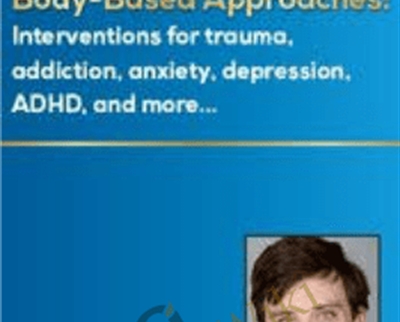


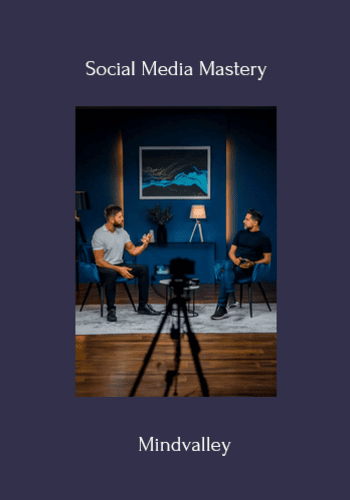
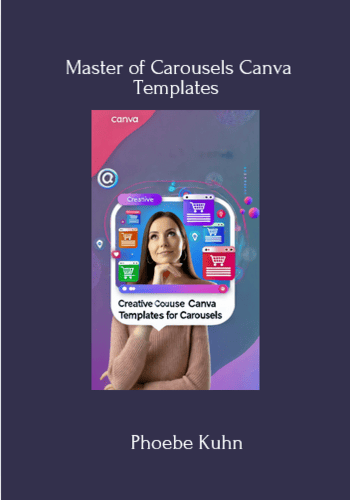
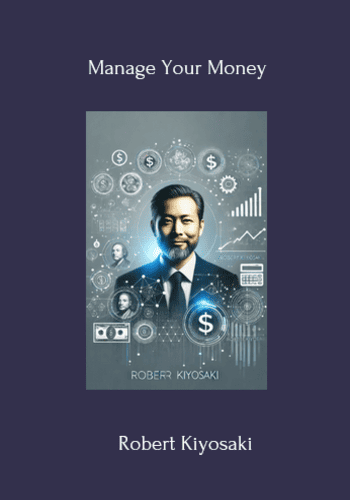
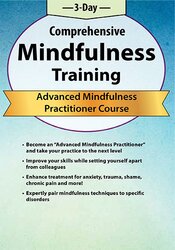
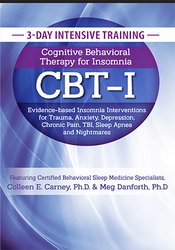
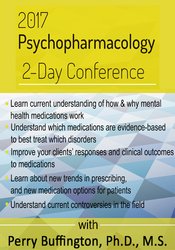
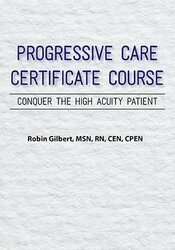
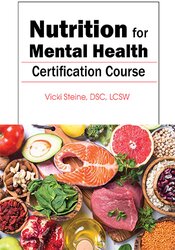
There are no reviews yet.